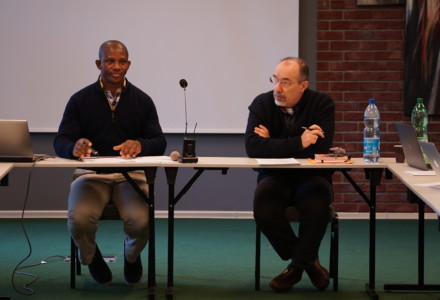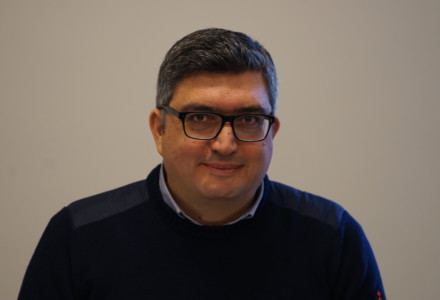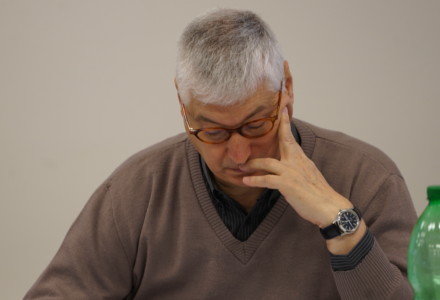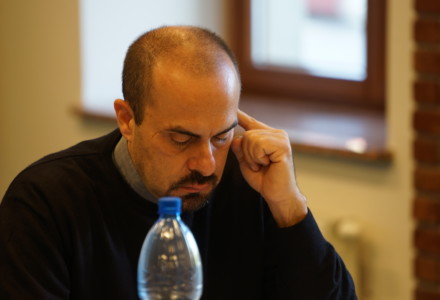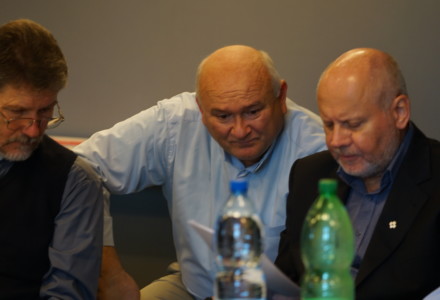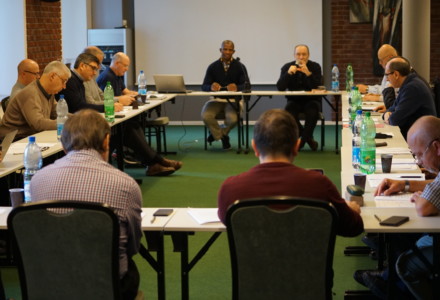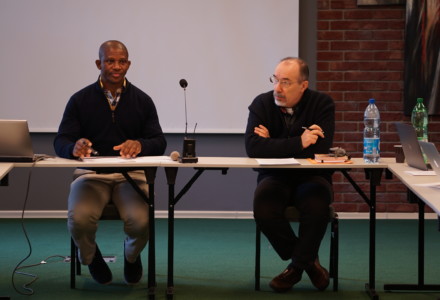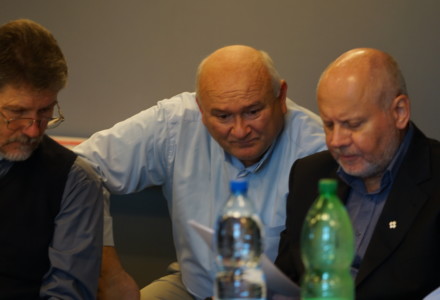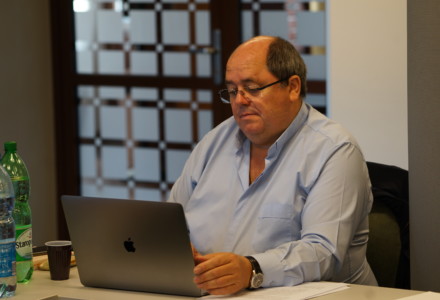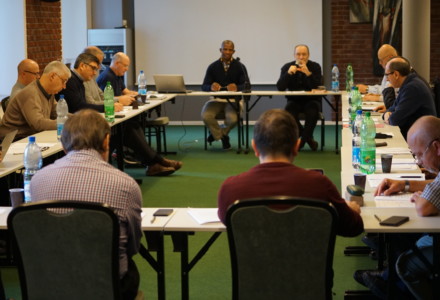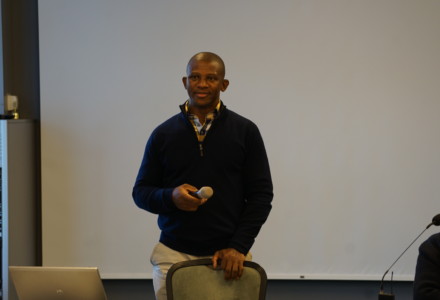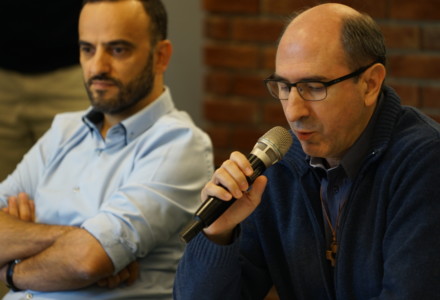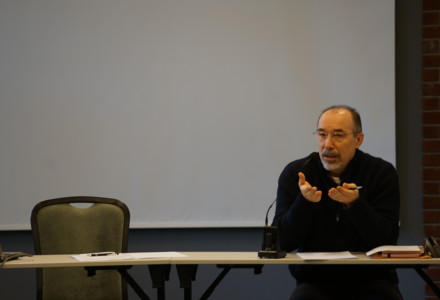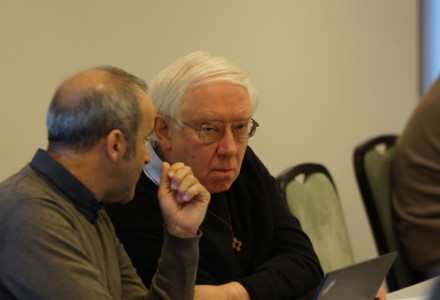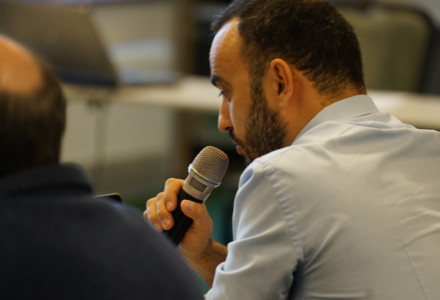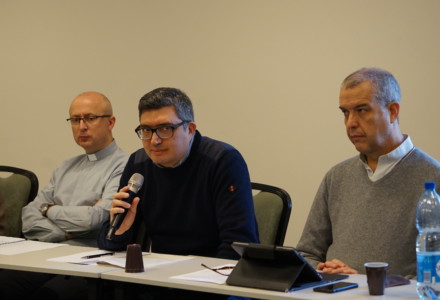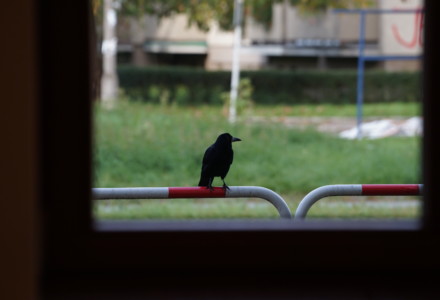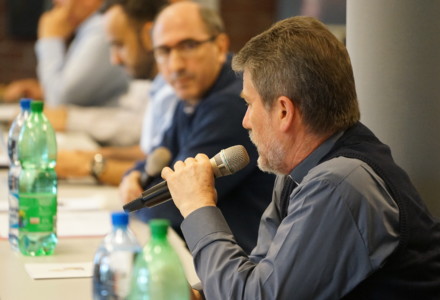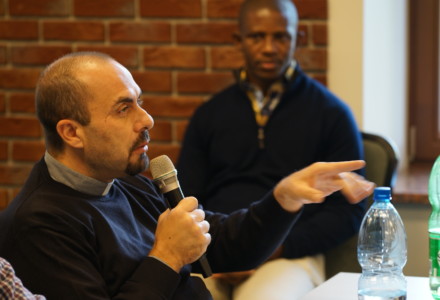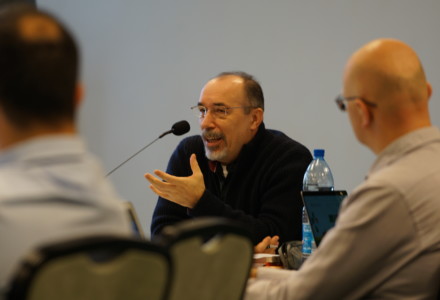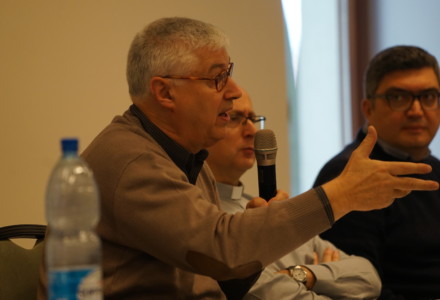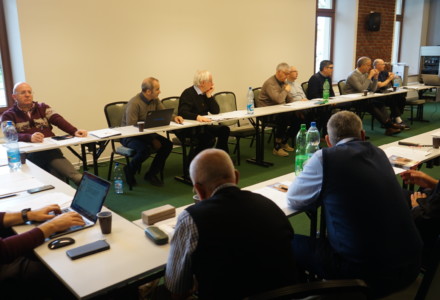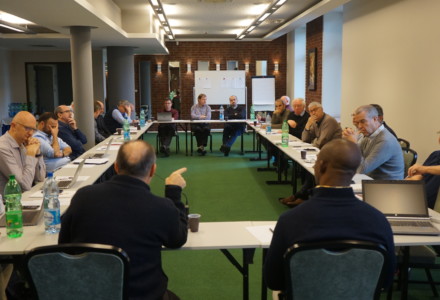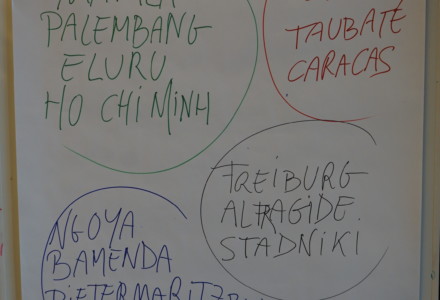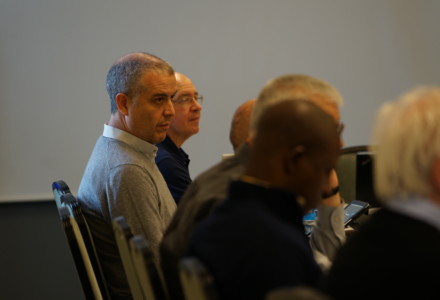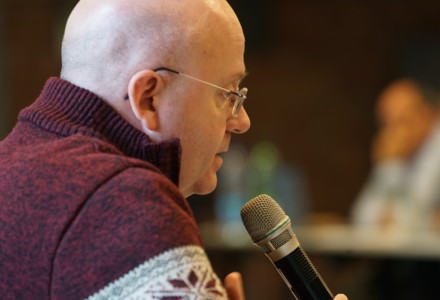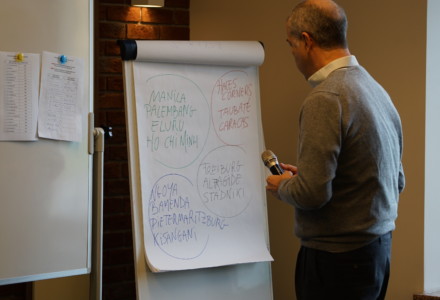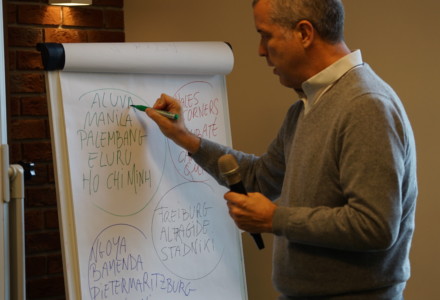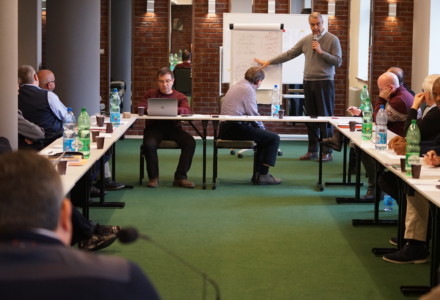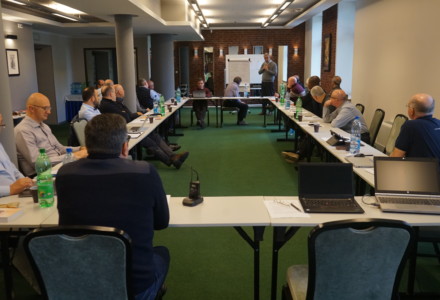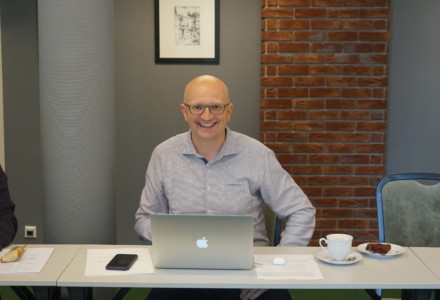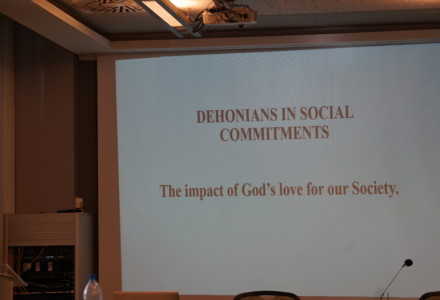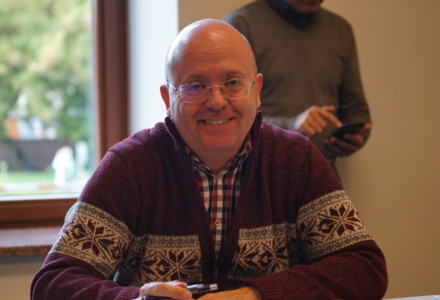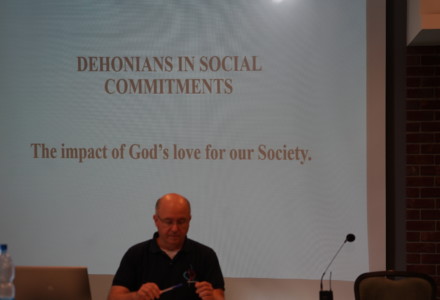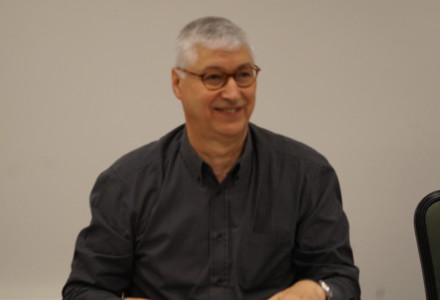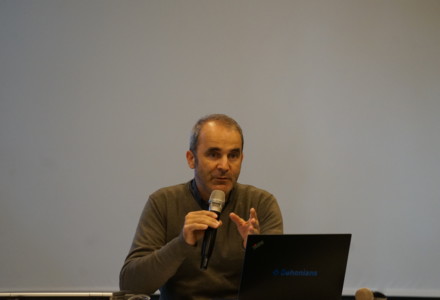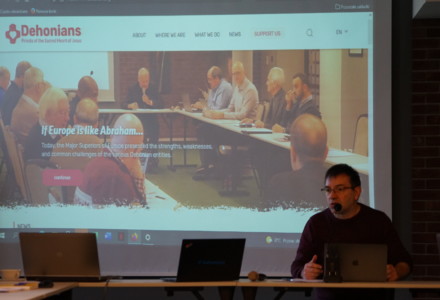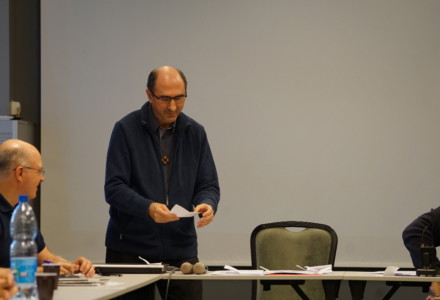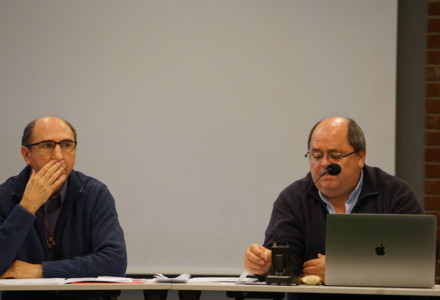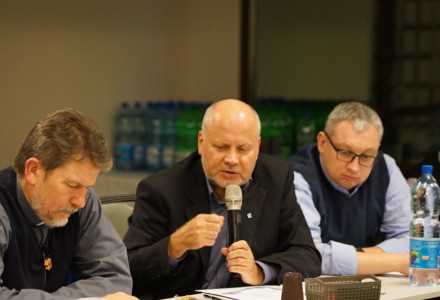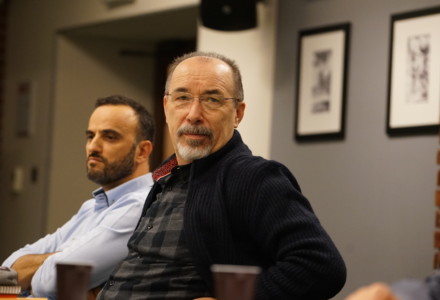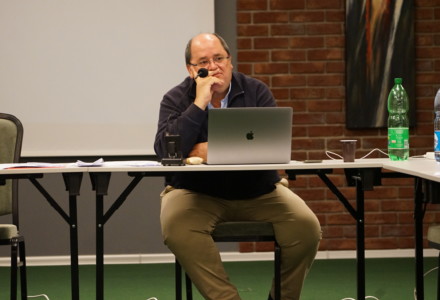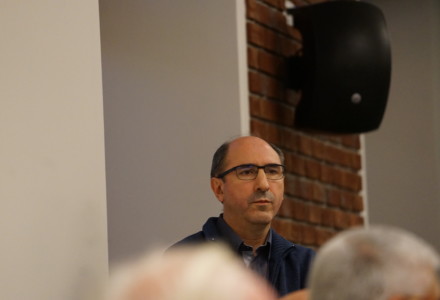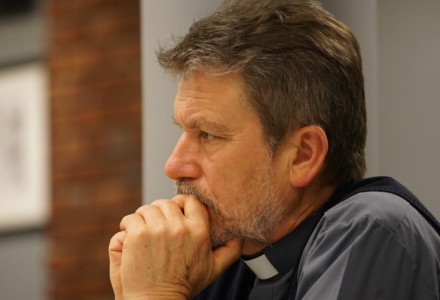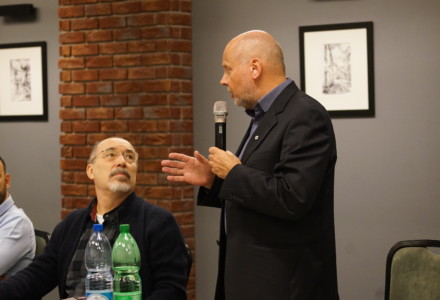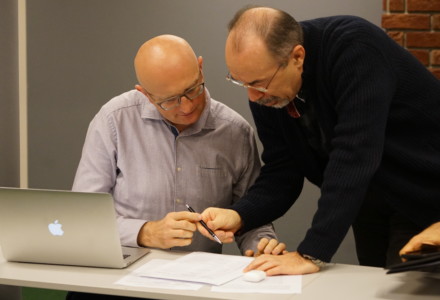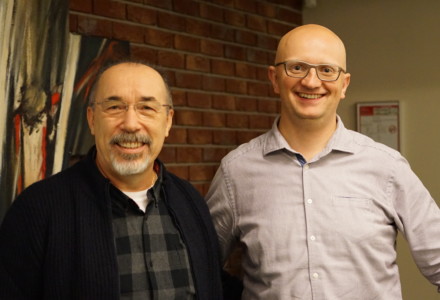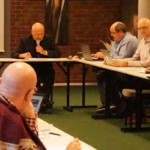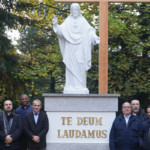New missions in Europe, formation and places of the foundation were themes of today's meeting. In the afternoon, Fr. Enzo Brena was elected the new president of the Major Superiors of Europe, and Fr. Radosław Warenda was elected secretary.
Are we ready to do something together? This was the crucial question that resonated during today’s assembly. An intense day, full of information, ideas, perspectives, but at the end risks remaining everything on paper. Let’s take a step back.
Dehonian Mission of Europe
The Superior General opened the session on the Dehonian Mission in Europe by presenting the new missions in Holland and a possible new presence in Norway. He provoked the assembly of major superiors to rethink on formation in Europe and to engage in some projects on ‘Laudato sii’ proposed by the Vatican and ecclesial associations. Topics that – in our opinion – did not find sufficient space for deeper reflection.
Inside the Needs of Europe
Being Dehonians in Europe means, first of all, not focusing on one’s own needs, but on the needs of the church and of European society. This implies a commitment to be among the people to be promoters and servants of fraternity, as a characteristic of our consecrated life. On a more internal level, the European entities should review their formation and administrative structures, with greater coordination, taking the other continental entities of the congregation as an example.
“The Dehonian Holy Land”
The morning’s discussion focused on the places of foundation, the so-called “Dehonian Holy Land”. Fr. Famerée, Provincial Superior of EUF, explained the current situation of these founding places (La Capelle, Brussels, Saint Quentin). All these places have a pastoral aspect, much appreciated by the people and the bishops. In Saint Quentin, for the first time in Dehonian history, a Vietnamese Dehonian will be employed as a teacher at the College founded by Fr. Fr. Famerée then informed the audience that this month work will begin on the renovation of St. Martin’s Church in Saint Quentin and that the bureaucratic process has begun for the translation of the mortal remains of Fr. André Prévot. “These places,” it was said, “should not just be museums, but living places of welcome, pastoral commitment and formation, the care of these places is the responsibility not only of Europe but of the entire congregation.
Formation in Europe
In the congregation today there are 18 centers of initial formation. A very high number, but justified by the number of candidates for religious life. Not so for Europe. In practice, the attempt to create a European student house for European candidates has failed because…there are no candidates. In addition, it has been understood that formation does not consist only in the search for good centers of study, but in knowing how to accompany the candidates personally and to find for each one the best way to experience religious life, preferably in his entity. But other and more interesting perspectives emerged: Europe could offer scholarships for specialized formation or master’s degrees; it could also provide ongoing formation courses for the entire congregation and the Dehonian family.
The European Continental Conference
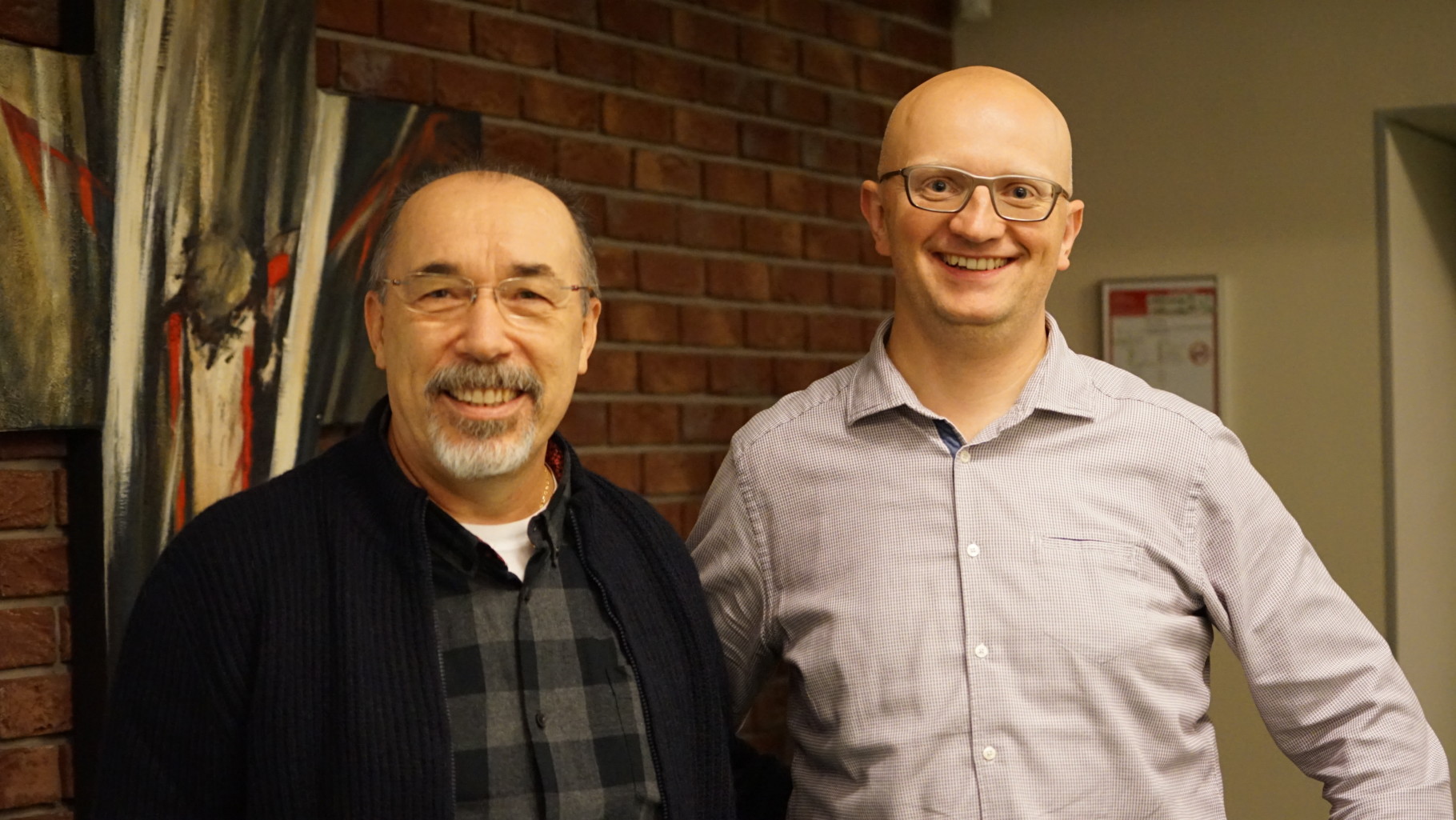 How to give substance to ideas? Although no clear-cut answer was given, the feeling is that the Major Superiors of Europe want to do something together. For this reason, it was decided to plan a European Continental Conference every year, to give substance to the common path. Today was also the day of the election of the new coordinators. Fr. Enzo Brena of the ITS province was elected president of the group of European Major Superiors and Fr. Radosław Warenda of the POL province was elected the new secretary. To them is entrusted the task of keeping alive the fraternal spirit and dialogue towards new horizons.
How to give substance to ideas? Although no clear-cut answer was given, the feeling is that the Major Superiors of Europe want to do something together. For this reason, it was decided to plan a European Continental Conference every year, to give substance to the common path. Today was also the day of the election of the new coordinators. Fr. Enzo Brena of the ITS province was elected president of the group of European Major Superiors and Fr. Radosław Warenda of the POL province was elected the new secretary. To them is entrusted the task of keeping alive the fraternal spirit and dialogue towards new horizons.


